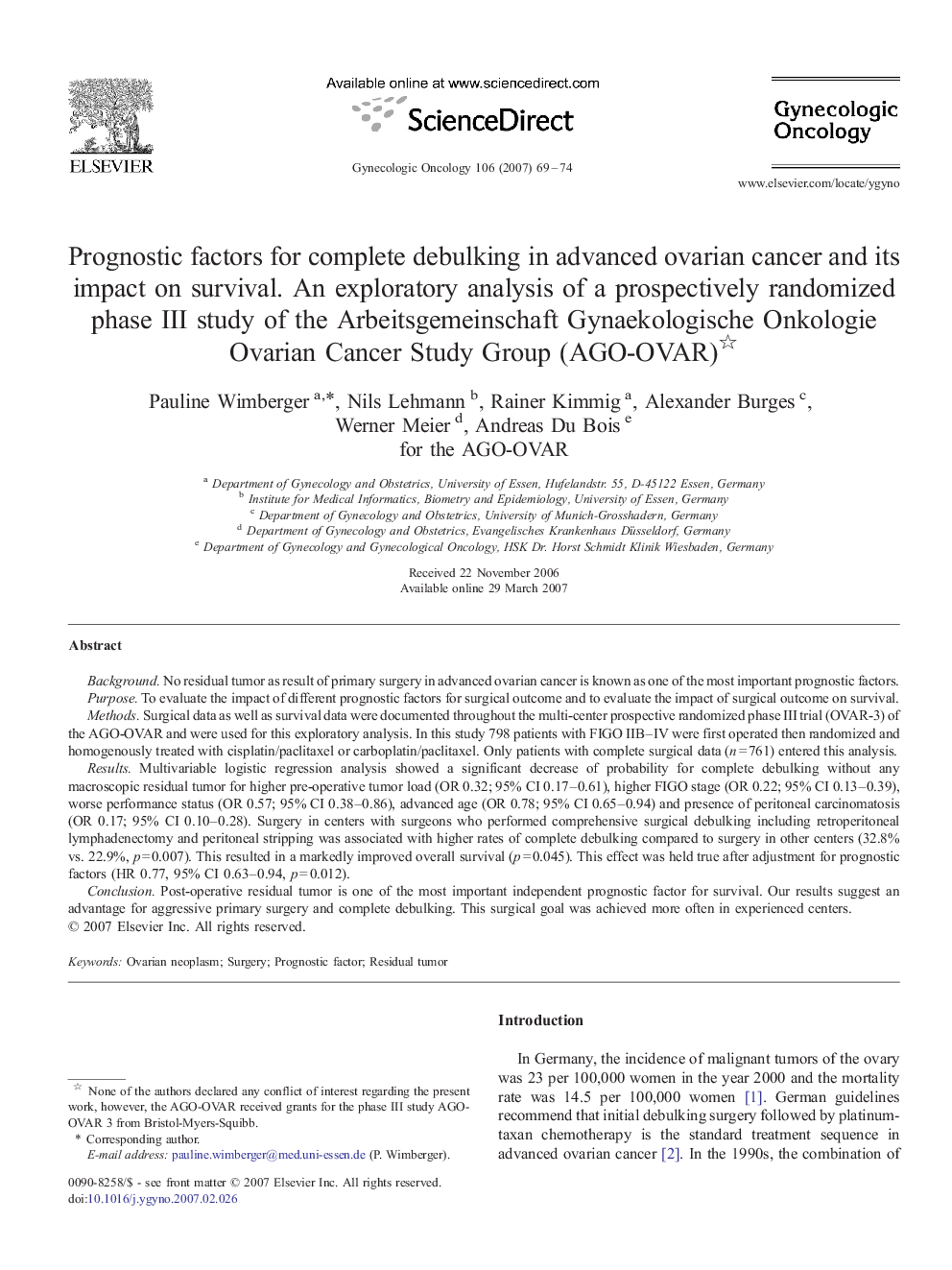| کد مقاله | کد نشریه | سال انتشار | مقاله انگلیسی | نسخه تمام متن |
|---|---|---|---|---|
| 3947571 | 1254459 | 2007 | 6 صفحه PDF | دانلود رایگان |

Background.No residual tumor as result of primary surgery in advanced ovarian cancer is known as one of the most important prognostic factors.Purpose.To evaluate the impact of different prognostic factors for surgical outcome and to evaluate the impact of surgical outcome on survival.Methods.Surgical data as well as survival data were documented throughout the multi-center prospective randomized phase III trial (OVAR-3) of the AGO-OVAR and were used for this exploratory analysis. In this study 798 patients with FIGO IIB–IV were first operated then randomized and homogenously treated with cisplatin/paclitaxel or carboplatin/paclitaxel. Only patients with complete surgical data (n = 761) entered this analysis.Results.Multivariable logistic regression analysis showed a significant decrease of probability for complete debulking without any macroscopic residual tumor for higher pre-operative tumor load (OR 0.32; 95% CI 0.17–0.61), higher FIGO stage (OR 0.22; 95% CI 0.13–0.39), worse performance status (OR 0.57; 95% CI 0.38–0.86), advanced age (OR 0.78; 95% CI 0.65–0.94) and presence of peritoneal carcinomatosis (OR 0.17; 95% CI 0.10–0.28). Surgery in centers with surgeons who performed comprehensive surgical debulking including retroperitoneal lymphadenectomy and peritoneal stripping was associated with higher rates of complete debulking compared to surgery in other centers (32.8% vs. 22.9%, p = 0.007). This resulted in a markedly improved overall survival (p = 0.045). This effect was held true after adjustment for prognostic factors (HR 0.77, 95% CI 0.63–0.94, p = 0.012).Conclusion.Post-operative residual tumor is one of the most important independent prognostic factor for survival. Our results suggest an advantage for aggressive primary surgery and complete debulking. This surgical goal was achieved more often in experienced centers.
Journal: Gynecologic Oncology - Volume 106, Issue 1, July 2007, Pages 69–74